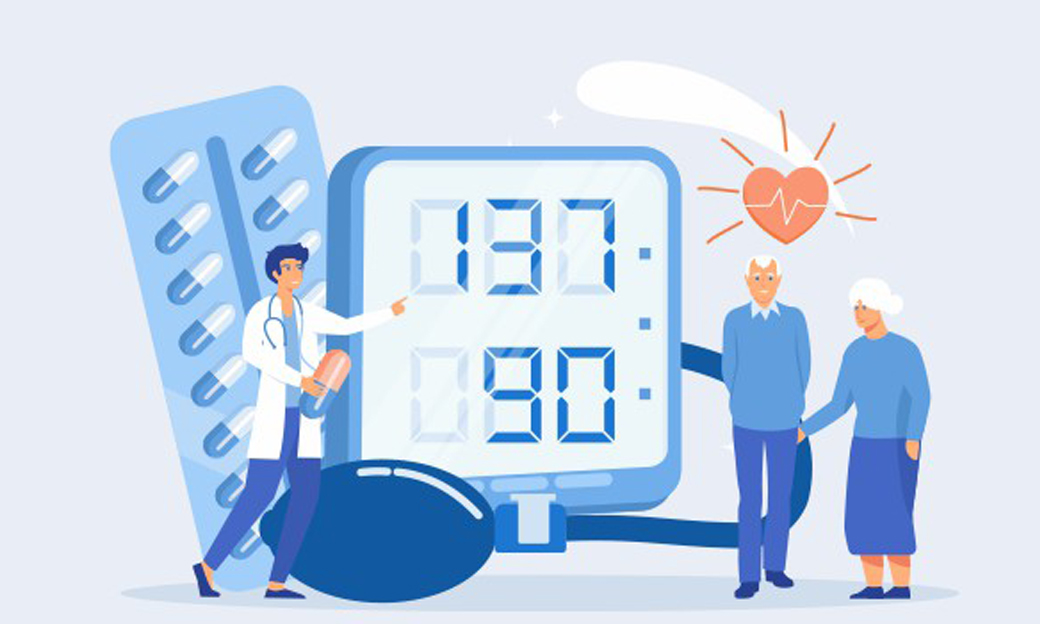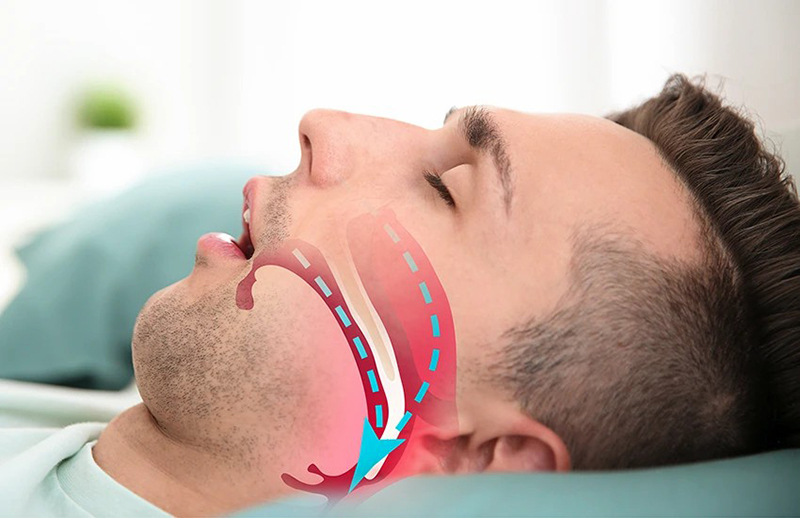
High diastolic blood pressure, also known as diastolic hypertension, occurs when the diastolic number in a blood pressure reading—representing the pressure in the arteries when the heart is at rest between beats—is consistently elevated. A normal diastolic blood pressure is typically between 60 and 80 mmHg. When this number exceeds 80 mmHg regularly, it signals a potential health risk. Diastolic hypertension is particularly concerning because it indicates the heart is constantly under stress, even when it is supposed to be resting.
1. Unhealthy Lifestyle Habits
The most significant contributors to high diastolic blood pressure are lifestyle-related factors. Unhealthy eating habits, such as consuming a diet high in sodium, saturated fats, and cholesterol, are particularly harmful. Sodium, found in high quantities in processed foods, causes the body to retain water, which increases blood volume and, consequently, blood pressure. Similarly, saturated fats and cholesterol can lead to the buildup of plaque in the arteries, a condition known as atherosclerosis. As arteries become narrower and less flexible due to plaque buildup, the heart must work harder to pump blood through them, leading to an increase in diastolic pressure.
Physical inactivity compounds these issues. Regular exercise helps maintain the flexibility and strength of the cardiovascular system, including the arteries. Without sufficient physical activity, people are more likely to gain weight, which increases the risk of hypertension. Obesity, particularly when it involves excess abdominal fat, is strongly linked to higher diastolic blood pressure. Fat tissue requires more blood to supply oxygen and nutrients, which increases the workload on the heart and raises blood pressure.
Smoking is another major risk factor. Nicotine in cigarettes causes the blood vessels to constrict, leading to an immediate increase in blood pressure. Over time, smoking contributes to the hardening of the arteries, making it a significant long-term risk for high diastolic pressure. Similarly, excessive alcohol consumption can have a detrimental effect on blood pressure. Alcohol can increase blood pressure by interfering with the body's ability to regulate fluid levels and by damaging the liver, which plays a role in managing blood pressure.

2. Chronic Stress and Psychological Factors
Chronic stress is another major contributor to high diastolic blood pressure. When a person is under stress, the body releases stress hormones such as cortisol and adrenaline. These hormones prepare the body for a "fight or flight" response by increasing heart rate and tightening blood vessels, which temporarily raises blood pressure. While this response is normal, chronic stress leads to prolonged periods of elevated blood pressure, which can result in sustained high diastolic pressure.
Mental health conditions like anxiety and depression can also play a role in the development of high diastolic blood pressure. These conditions often lead to unhealthy behaviors, such as poor diet, lack of exercise, smoking, and alcohol use, which are all risk factors for hypertension. Additionally, the physiological effects of anxiety and depression, such as increased heart rate and blood vessel constriction, can directly contribute to higher blood pressure.

3. Medical Conditions and Disorders
Several medical conditions are closely associated with high diastolic blood pressure. Chronic kidney disease (CKD) is one of the most significant of these conditions. The kidneys are responsible for filtering waste products from the blood and regulating the balance of fluids, electrolytes, and hormones that control blood pressure. When the kidneys are damaged or not functioning properly, they can cause an imbalance in these processes, leading to increased blood pressure. High diastolic pressure can both contribute to and result from kidney damage, creating a dangerous cycle.
Endocrine disorders also play a crucial role in the development of high diastolic blood pressure. For instance, hyperthyroidism (an overactive thyroid) leads to an increased production of thyroid hormones, which can cause the heart to beat faster and more forcefully, raising blood pressure. Cushing's syndrome, a condition where the body produces too much cortisol, can similarly increase blood pressure. Additionally, pheochromocytoma, a rare tumor of the adrenal glands, can cause the glands to produce excessive amounts of adrenaline, leading to spikes in blood pressure.
Sleep apnea, a condition characterized by repeated interruptions in breathing during sleep, is another medical issue linked to high diastolic blood pressure. Each pause in breathing during sleep reduces the amount of oxygen in the blood, which triggers a stress response in the body, leading to an increase in blood pressure. Over time, this can result in chronic high blood pressure, including elevated diastolic readings.

4. Age, Gender, and Genetic Factors
Age is a natural factor that influences blood pressure. As people age, their blood vessels lose elasticity, becoming stiffer and less able to accommodate the flow of blood. This loss of elasticity, combined with the buildup of plaque in the arteries, increases the resistance against which the heart must pump, leading to higher diastolic pressure. While systolic blood pressure (the top number in a reading) tends to increase more significantly with age, diastolic pressure can also rise, particularly if lifestyle factors or medical conditions are not well managed.
Gender also plays a role, particularly in younger populations. Before the age of 55, men are more likely to develop high blood pressure, including high diastolic blood pressure, compared to women. However, after menopause, women’s risk increases and can equal or surpass that of men.
Genetics is another crucial factor. High blood pressure often runs in families, indicating a genetic predisposition. This genetic influence can affect various aspects of blood pressure regulation, such as how the kidneys manage salt, how the blood vessels respond to hormones, and how efficiently the heart pumps blood. Individuals with a family history of hypertension are at a higher risk and should be particularly vigilant about monitoring and managing their blood pressure.

5. Medications and External Substances
Certain medications and substances can contribute to high diastolic blood pressure. Nonsteroidal anti-inflammatory drugs (NSAIDs), which are commonly used to treat pain and inflammation, can cause the body to retain sodium and reduce kidney function, both of which can raise blood pressure. Some antidepressants, particularly those that affect serotonin and norepinephrine levels, can also increase blood pressure by affecting the heart rate and the tone of blood vessels.
Corticosteroids, which are used to treat conditions like asthma and autoimmune diseases, can lead to fluid retention and increased blood pressure. Additionally, birth control pills, particularly those containing estrogen, have been linked to higher blood pressure in some women.
Stimulants, including caffeine, nicotine, and certain illicit drugs like cocaine and amphetamines, can cause temporary increases in blood pressure by stimulating the central nervous system and constricting blood vessels. While these effects are usually short-lived, frequent use of stimulants can lead to sustained high diastolic blood pressure.

High diastolic blood pressure is a complex condition with multiple contributing factors, including lifestyle choices, chronic stress, underlying medical conditions, age, genetics, and the use of certain medications or substances. Addressing high diastolic blood pressure requires a comprehensive approach that includes lifestyle modifications, medical management, and stress reduction strategies. By understanding the various causes of high diastolic blood pressure, individuals and healthcare providers can work together to develop effective prevention and treatment plans. Early intervention is crucial to preventing the long-term complications associated with high blood pressure, such as heart disease, stroke, and kidney failure.
Subscribe means that you have read and agree to the Privacy Policy.
Subscribe means that you have read and agree to the Privacy Policy.
Copyright © Shenzhen Pango Medical Electronics Co.,Ltd, Ltd. All Rights Reserved.